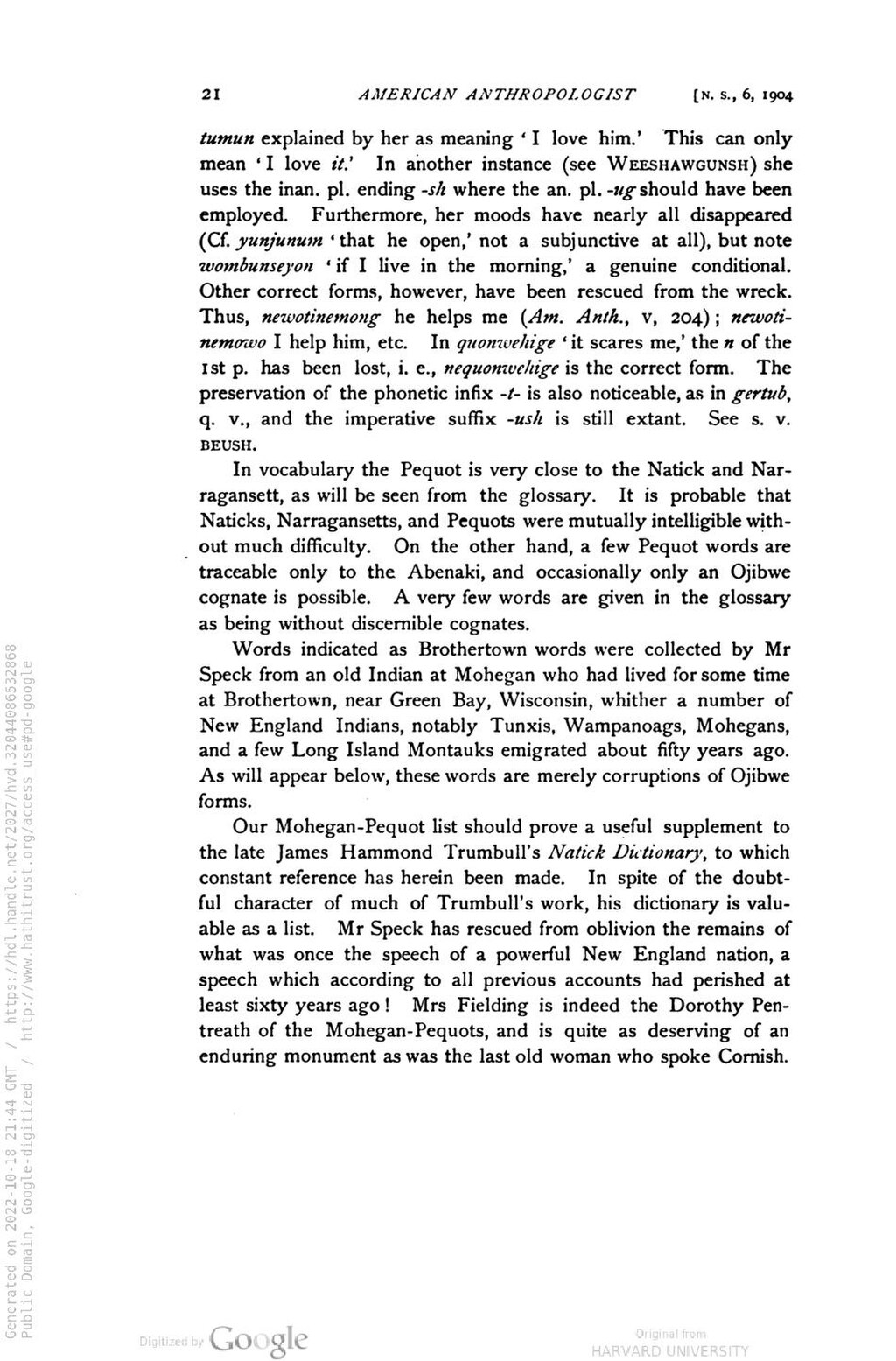tumun explained by her as meaning ‘I love him.’ This can only mean ‘I love it.’ In another instance (see Weeshawgunsh) she uses the inan. pl. ending -sh where the an. pl. -ug should have been employed. Furthermore, her moods have nearly all disappeared (Cf. yunjunum ‘that he open,’ not a subjunctive at all), but note wombunseyon ‘if I live in the morning,’ a genuine conditional. Other correct forms, however, have been rescued from the wreck. Thus, newotinemong he helps me (Am. Anth., v, 204); newotinemowo I help him, etc. In quonwehige ‘it scares me,’ the n of the 1st p. has been lost, i. e., nequonwehige is the correct form. The preservation of the phonetic infix -t- is also noticeable, as in gertub, q. v., and the imperative suffix -ush is still extant. See s. v. beush.
In vocabulary the Pequot is very close to the Natick and Narragansett, as will be seen from the glossary. It is probable that Naticks, Narragansetts, and Pequots were mutually intelligible without much difficulty. On the other hand, a few Pequot words are traceable only to the Abenaki, and occasionally only an Ojibwe cognate is possible. A very few words are given in the glossary as being without discernible cognates.
Words indicated as Brothertown words were collected by Mr Speck from an old Indian at Mohegan who had lived for some time at Brothertown, near Green Bay, Wisconsin, whither a number of New England Indians, notably Tunxis, Wampanoags, Mohegans, and a few Long Island Montauks emigrated about fifty years ago. As will appear below, these words are merely corruptions of Ojibwe forms.
Our Mohegan-Pequot list should prove a useful supplement to the late James Hammond Trumbull’s Natick Dictionary, to which constant reference has herein been made. In spite of the doubtful character of much of Trumbull’s work, his dictionary is valuable as a list. Mr Speck has rescued from oblivion the remains of what was once the speech of a powerful New England nation, a speech which according to all previous accounts had perished at least sixty years ago! Mrs Fielding is indeed the Dorothy Pentreath of the Mohegan-Pequots, and is quite as deserving of an enduring monument as was the last old woman who spoke Cornish.
